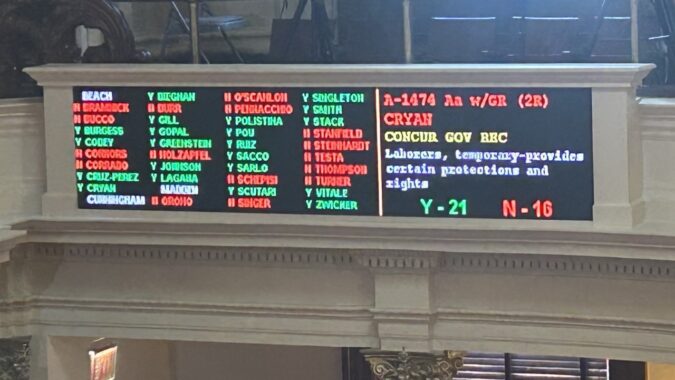A contentious bill that seeks to establish a temporary workers bill of rights, but at great cost and burden to New Jersey staffing agencies and the employers who use them, was advanced by the Senate on Thursday.
Bill A-1474, which has been strongly opposed by NJBIA, narrowly passed, 21-16. After previously being conditionally vetoed by Gov. Phil Murphy and subsequently being held by the Senate for the past few months for not having enough votes, it now advances back to his desk.
NJBIA Vice President of Government Affairs Alexis Bailey, whose OpEd in NJ Spotlight today sought balance in the bill, issued the following statement following the release of the legislation.
“NJBIA has always appreciated the intent of this bill. However, we have repeatedly warned that at least one key provision of it would so greatly drive up the cost of utilizing temp agencies, that it would jeopardize legitimate temp agencies, harm third-party businesses that use them, and, as a result, provide less opportunity for those seeking temporary employment.
“The bill passed by the Senate today, after not having enough votes on previous occasions, requires temporary workers to be paid the average compensation rate and benefits or the cash equivalent of the average cost of benefits paid to their employee counterparts.
“As a result of this, some temporary workers will be making more than permanent employees whose wages are determined by seniority and experience. There are also many logistical burdens to consider as temp agencies contract with multiple businesses that offer different benefits packages. All of this will serve to make it extremely difficult to provide jobs for temporary workers.
“Other states like Illinois and Massachusetts have taken steps to bring further protections and transparency for temporary workers without this damaging provision. But New Jersey, as is unfortunately typical, has gone a step too far to be an outlier in bringing as many burdens to business as possible.
“The staffing industry – a major contributor to New Jersey’s economy – will be worse off because of this bill. Employers will face even greater challenges as they seek to fill gaps in their workforce. Ultimately, the unintended consequences will hurt the very workers this bill seeks to protect.”




